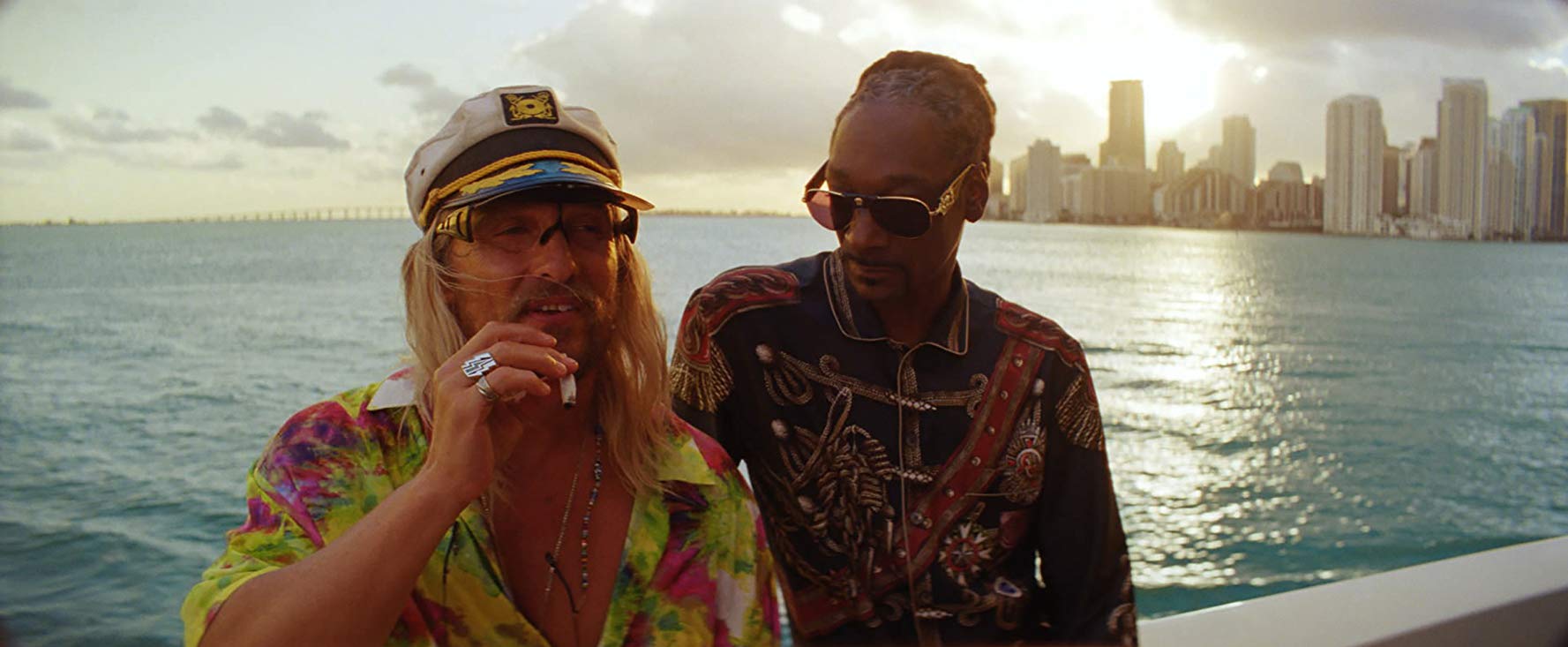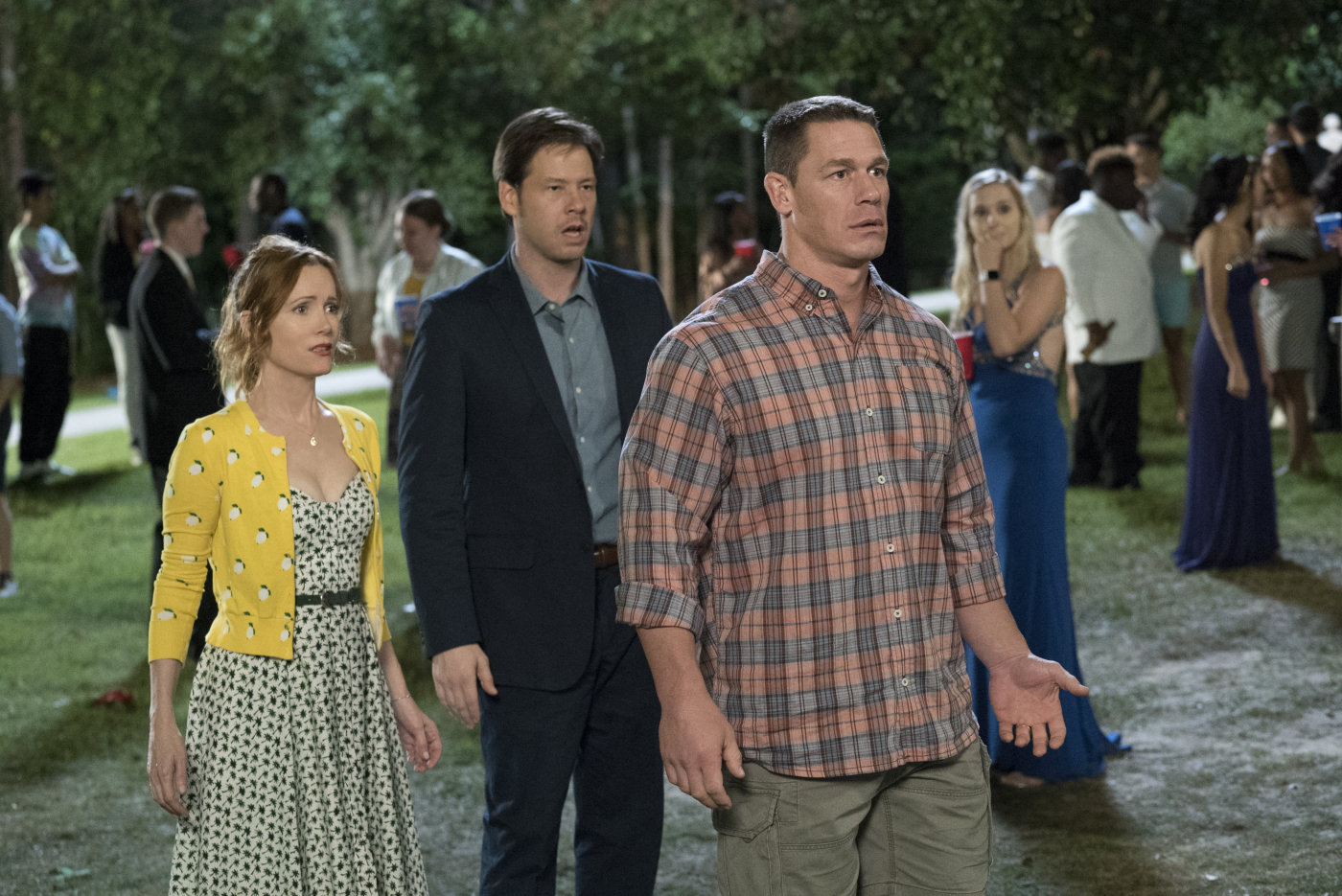Have you ever thought about what it would have been like to have been a 20th Century Austrian? By 1900, Austria had teamed up with some of its southern neighbors to become one the most powerful and power-hungry nation-states in the world. Then WWI happened, and that disappeared … so approximately four seconds later, Austria was claimed by its fellow German-speaking northern neighbors to become one of the most powerful and power-hungry nation states in the world. But that never disappeared, right?
Meanwhile, much of Austria itself is filled with a bunch of alp-viewing goat herders and all they care about is tending the farm and solving problems like Maria. That is until the Nazis showed up … who could possibly have guessed a rural, agrarian population would be suckers for ultranationalism and fearmongering?
The Jägerstätter family is so understated they’re probably embarrassed by the pretentious umlauts in the family name. Franz (August Diehl) and Fani (Valerie Pachner) – and this information is new to me; in three hours of film, I’m not sure I ever heard either of their names— have a modest family living on a modest farm in a modest town silhouetted by arguably the prettiest backdrop in the world. Their lives are simple, beautiful, and romantic … yes, we get that, Terrence Malick. 57 more establishing shots do not actually give me a greater sense that the film and the small town is modest and picturesque.
Writer/director Terrence Malick, so often guilty of meandering bloat, avoided pointless drivel this time around, instead opting for not-so-pointless drivel. Eventually, a plot had to happen and this one involves Nazis. We are, after all, in the Austria of 1939. Franz is sent to war then returns home as, early on in WWII, the Nazis favored farmers as food- producers more than soldiers. This changes, of course. Nazism and Nazi fever take over the tiny village; the film, almost church-like quiet to this point, actually starts making a little noise. FWIW, A Hidden Life is acted in English, but all speech expressed from an evil POV is in German and largely untranslated. In these cases, you don’t need to know the translation to know what’s being said.
As the townspeople grow more and more fervid, Franz asks, “How do we know we’re not the bad guys?” Great question … and one I’d like to ask Trump voters every single day. Franz refuses to sign an oath to Hitler, which pretty much amounts to treason, and is sent away, but not before he and Fani are alienated by everybody. The village hostility to Fani remains well beyond Franz’ departure. And life for the imprisoned Franz gets uglier and uglier with his continued refusal to sign. Geez, white supremacists get so angry. And that, folks, is the film. All three hours.
While I would still happily pronounce The Tree of Life as one of the worst films I have ever seen, I finally understand the appeal and genius of Terrence Malick. The key to Malick’s style is that he wants every single shot to tell a story by itself. There are quite literally hundreds of establishing shots in A Hidden Life, each begging a snooty audience to capture it, hang it on a wall, and comment while sipping chardonnay. The problem is that this style of filmmaking is disjointed and exhausting. It would grow tiresome in a 30-minute short. In a three hours, this style amounts to torture. Malick seems so protective he seemingly never lets his the editors have a say. His films constantly ask, “Why have ten minutes of story when you can make it into an hour?” A Hidden Life has over two hours of superfluous footage. Two hours. You could have told this story completely and efficiently in 45 minutes. The three hour runtime does make the ultimate impact stronger, but by the time I got there, I was too tired to generate the emotional response required.
A Hidden Life is an important film for the lessons it tells about conformity and pack mentality. Unfortunately, those lessons are considerably weakened by the bloated runtime. Still, films like this are needed for preservation for when Premier Trump requires a loyalty oath of all Americans.
♪The lies are alive with the sound of boot straps
With thug rhetoric, playing at your fears
Evil fills my heart with symbolic hatred
History repeats as oppression nears♫
Rated PG-13, 174 Minutes
Director: Terrence Malick
Writer: Terrence Malick
Genre: Other people the Nazis bullied in WWII
Type of being most likely to enjoy this film: Austrian sheep herding pacifists
Type of being least likely to enjoy this film: High school students required to watch this one in class
♪ Parody Inspired by “The Hills Are Alive”




